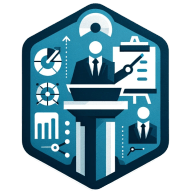7 Tips for Transitioning into a New Role Or Industry
Navigating a career transition can be daunting, but arming oneself with the right strategies can pave the way to success. This article demystifies the process with practical tips underscored by advice from industry experts. Discover how to harness existing skills and foster new ones to thrive in a new role or sector.
- Leverage Existing Skills and Experiences
- Invest Time in Learning Required Skills
- Immerse Yourself in the New Field
- Formalize Knowledge Through Education
- Adapt Skills to New Industry
- Embrace a Learning-First Approach
- Invest in Ongoing Education and Skill Development
Leverage Existing Skills and Experiences
One significant step I took to transition into a new industry was leveraging my existing skills and experiences to create immediate value in a completely different context. After my injury and discharge from the Australian Army, I moved from telecommunications within the military to starting my own telecommunications company. At first, I didn't have the blueprint for running a business, but I leaned heavily on the discipline, problem-solving, and leadership skills I had developed in the army. I also educated myself further by diving deep into industry knowledge and forming connections with key players. These efforts paid off when my company caught the attention of Telstra, which led to national recognition and a thriving business that employed 30 people and generated millions in revenue. It was about recognizing how my foundational skills could be applied in a commercial setting and then investing time to learn the nuances of the industry. For others looking to make a similar move, my advice is twofold. First, focus on transferable skills. Identify the abilities and traits that made you successful in your previous role and understand how they can solve problems in the new industry. Second, don't underestimate the value of formal education and mentorship. My MBA in finance was pivotal in expanding my capabilities, and surrounding myself with experienced professionals in my network accelerated my learning curve. Research your target industry, find gaps you can fill, and commit to becoming a continuous learner. By combining your expertise with a willingness to adapt and grow, you'll set yourself apart in any new role or sector.
Invest Time in Learning Required Skills
One step I took when transitioning into a new role was investing time in learning the specific skills and knowledge required for the industry. I didn't just rely on my existing experience—I identified gaps in what I knew and actively worked to fill them, whether through online courses, certifications, or networking with people in the field.
For example, when I moved into a role that required a deeper understanding of digital marketing, I took a course on SEO and content strategy. Alongside that, I reached out to a few professionals on LinkedIn for advice, which not only helped me learn but also expanded my network in the industry. This combination of self-learning and connecting with others made the transition smoother and helped me feel more confident in my new role.
My advice to anyone looking to make a similar move is to start by being honest about what you don't know and then create a clear plan to address it. Be proactive—whether it's through formal learning, side projects, or simply asking for guidance. Also, don't underestimate the power of networking. Building relationships with people already in the industry can open doors and give you valuable insights that no course or book can provide.

Immerse Yourself in the New Field
When I transitioned from sales to marketing, I took proactive steps to immerse myself in the new field even before officially making the switch. While still in sales, I frequently stopped by the marketing department to offer help, which allowed me to learn their processes and contribute meaningfully. I also took the initiative to create PowerPoint presentations, set up email marketing campaigns, and introduced the sales team to LinkedIn strategies and webinars. My advice to others making a similar move is to incorporate as much of the new role into your current position or take on side projects outside of work. This not only builds relevant skills but also demonstrates your commitment and adaptability, making the transition smoother and more credible.
Formalize Knowledge Through Education
When I transitioned from a career in music to starting my own gardening business, the most pivotal step I took was going back to study horticulture. While I had years of hands-on experience working with plants and maintaining gardens, I knew that formalizing my knowledge would give me a deeper understanding of the science behind successful gardening. This decision not only equipped me with advanced skills but also gave me the confidence to approach clients as a certified horticulturist. For example, I learned about soil composition and how to optimize it for specific plants, which allowed me to solve complex issues for my customers that many might overlook. Combining this theoretical knowledge with my practical experience gave me a unique edge, allowing me to provide expert-level services from day one.
For anyone looking to make a similar move, my advice is to fully embrace the learning process and identify how your existing skills can transfer into your new role. In my case, the problem-solving and creative thinking I developed in music helped me design beautiful, functional gardens that harmonize with nature. If you're passionate about a new field, immerse yourself in it completely, and don't be afraid to take the time to build your credentials. Practical experience combined with strong qualifications can open doors and establish credibility, even if you're new to an industry. The transition can feel daunting, but focusing on what makes you unique and committing to continuous learning will set you apart.
Adapt Skills to New Industry
Transitioning into a new role or industry can be daunting, but it's also incredibly rewarding. When I moved from the private sector to lead Careers in Government, a platform serving over 21M public sector job seekers, I learned some valuable lessons.
The key step I took was to immerse myself in the industry I was entering. I didn't just rely on my previous business experience; I made it a priority to understand the unique challenges and culture of government recruitment. This meant countless conversations with HR executives, attending public sector conferences, and really diving into the "Silver Tsunami" phenomenon of retiring baby boomers that was reshaping the government workforce.
This immersion paid off. We transformed CIG from a basic job board to a full-service marketing partner for government agencies. Our deep understanding of the sector's needs allowed us to implement innovative solutions, like targeted social media campaigns, resulting in a cost-per-application of under $1.
My advice: Don't just transfer your skills - adapt them. Immerse yourself in your new industry's culture and challenges. Network extensively, ask questions, and be prepared to innovate based on the unique needs you discover.

Embrace a Learning-First Approach
From Lawyer to Entrepreneur with a Shift in the Mindset When I transitioned into founding a legal process outsourcing company, one critical step I took was immersing myself in the industry to identify gaps and opportunities. Coming from a legal background as a litigator lawyer earlier, I already understood the challenges law firms faced, but entering the outsourcing space required a shift in mindset—from providing legal services to building scalable processes and managing client expectations globally. I remember reaching out to industry veterans and potential clients to gather insights on what they needed most, which shaped our focus on automation and redaction. My advice to anyone looking to make a similar move is to embrace a learning-first approach. Be willing to ask questions, seek mentorship, and take calculated risks. Don't be afraid of starting small—our first client project was modest but laid the foundation for understanding the industry's nuances and scaling effectively. Building confidence comes from being both prepared and adaptable.

Invest in Ongoing Education and Skill Development
Investing in ongoing education and skill development through online courses and certificates was one step I took to move into a new position. For instance, in order to fill the knowledge gap and boost my confidence when I transitioned into a leadership position in marketing, I earned certificates in project management and digital strategy. Identifying transferable talents and areas for improvement should be the first step, after which one should actively look for opportunities to obtain relevant experience by networking within the new field, freelancing, or volunteering. Maintaining flexibility and initiative while learning guarantees a more seamless and more successful transition.





